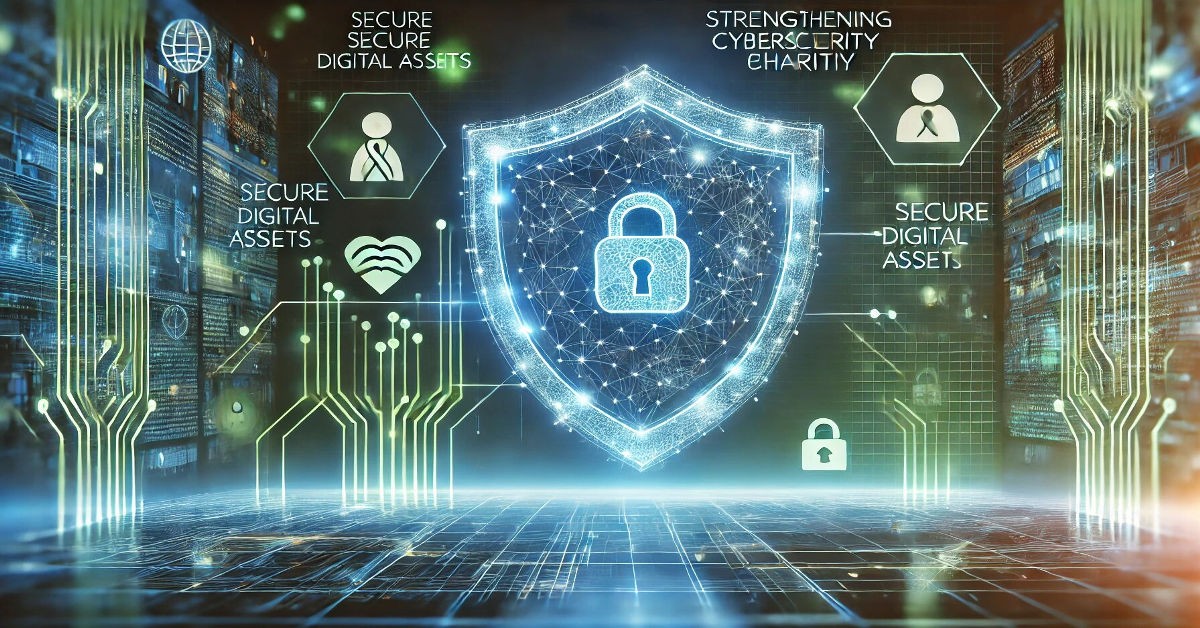Cybersecurity has become a non-negotiable priority for charities as they navigate an increasingly hostile digital landscape. At the heart of these protective measures lies identity management, a cornerstone for safeguarding sensitive information and ensuring operational resilience. With nearly a quarter of charities falling victim to cyberattacks in 2023, according to TwentyFour IT Services, and average breach costs for small businesses reaching £21,000, the stakes have never been higher. Let’s explore how emerging trends in identity management are shaping cybersecurity strategies for charities.
Transitioning to Zero-Trust with Identity Management
One of the most transformative shifts in cybersecurity is the adoption of zero-trust network access (ZTNA). This model emphasises that no one, whether inside or outside the organisation, is inherently trusted. Instead, continuous authentication, authorization, and validation are required for every interaction.
ZTNA marks a departure from traditional security frameworks, which often resemble a “moat-and-castle” structure. In the older model, once attackers bypassed the perimeter, they could freely navigate the network. Identity management in a zero-trust environment ensures access is limited strictly on a need-to-know basis, providing layered protections within the system.
Key Steps to Implement Zero-Trust Identity Management
- Identify Assets: Catalog devices, users, and workflows to assess vulnerabilities.
- Authenticate Devices and Users: Use tools like multi-factor authentication (MFA) to secure credentials and validate identities.
- Segment Workflows: Define access levels and create isolated zones to prevent intrusions from spreading.
Pro Tip: Integrate zero-trust protocols with advanced cybersecurity solutions for maximum effectiveness.
Advanced Phishing Threats: The Role of Identity Management
Phishing remains one of the most pervasive cyber threats, with the Information Commissioner’s Office (ICO) reporting that 91% of organisations have faced attacks. Modern phishing tactics target weaknesses in identity management systems, using data harvested from social media and legitimate platforms to create highly convincing schemes.
How Phishing Has Evolved
- Spearphishing: Tailored attacks targeting specific individuals.
- Whaling: Sophisticated schemes aimed at senior executives.
- Smishing: Exploiting vulnerabilities through text messages.
- Pharming: Redirecting users to fraudulent websites.
Identity Management Solutions to Combat Phishing
Strengthening identity management systems, such as implementing strict access controls and training staff to recognize phishing tactics, can mitigate these risks. Staff education is crucial, focusing on identifying suspicious communications and verifying unusual requests.
Pro Tip: Use real-life examples during training sessions to illustrate advanced phishing methods.
Password Security Meets Identity Management
Password security remains a key element of identity management. The average internet user manages 168 passwords, creating significant security vulnerabilities. Modern tools like password managers address these challenges by generating and storing complex, unique passwords for each account.
Benefits of Password Managers for Charities
- Centralised management of credentials across platforms.
- Enhanced protection against brute-force attacks and credential theft.
- Simplified access for staff with a single master password.
Pro Tip: Combine password managers with regular password audits to identify and address potential weaknesses.
Why Multi-Factor Authentication (MFA) Is Essential
Multi-factor authentication (MFA) continues to serve as a critical component of identity management. By requiring users to provide two or more verification factors—such as a password and a fingerprint—MFA significantly reduces the risk of unauthorised access.
For charities leveraging hybrid work environments, MFA is particularly vital for securing cloud-based systems and virtual private networks (VPNs).
Pro Tip: Pair MFA with zero-trust frameworks to create a comprehensive identity management strategy.
Building a Secure Future with Identity Management
Cybersecurity for Charities, robust identity management is a vital defence against evolving cyber threats. By adopting cutting-edge solutions like zero-trust protocols, advanced phishing defences, password managers, and MFA, organisations can protect sensitive data, ensure continuity, and build resilience.
As cyberattacks grow more sophisticated, charities must embrace the full potential of identity management to secure their operations and maintain the trust of their stakeholders.







